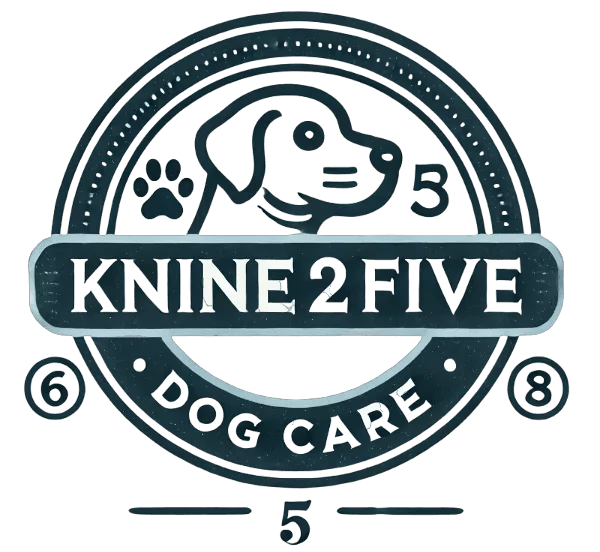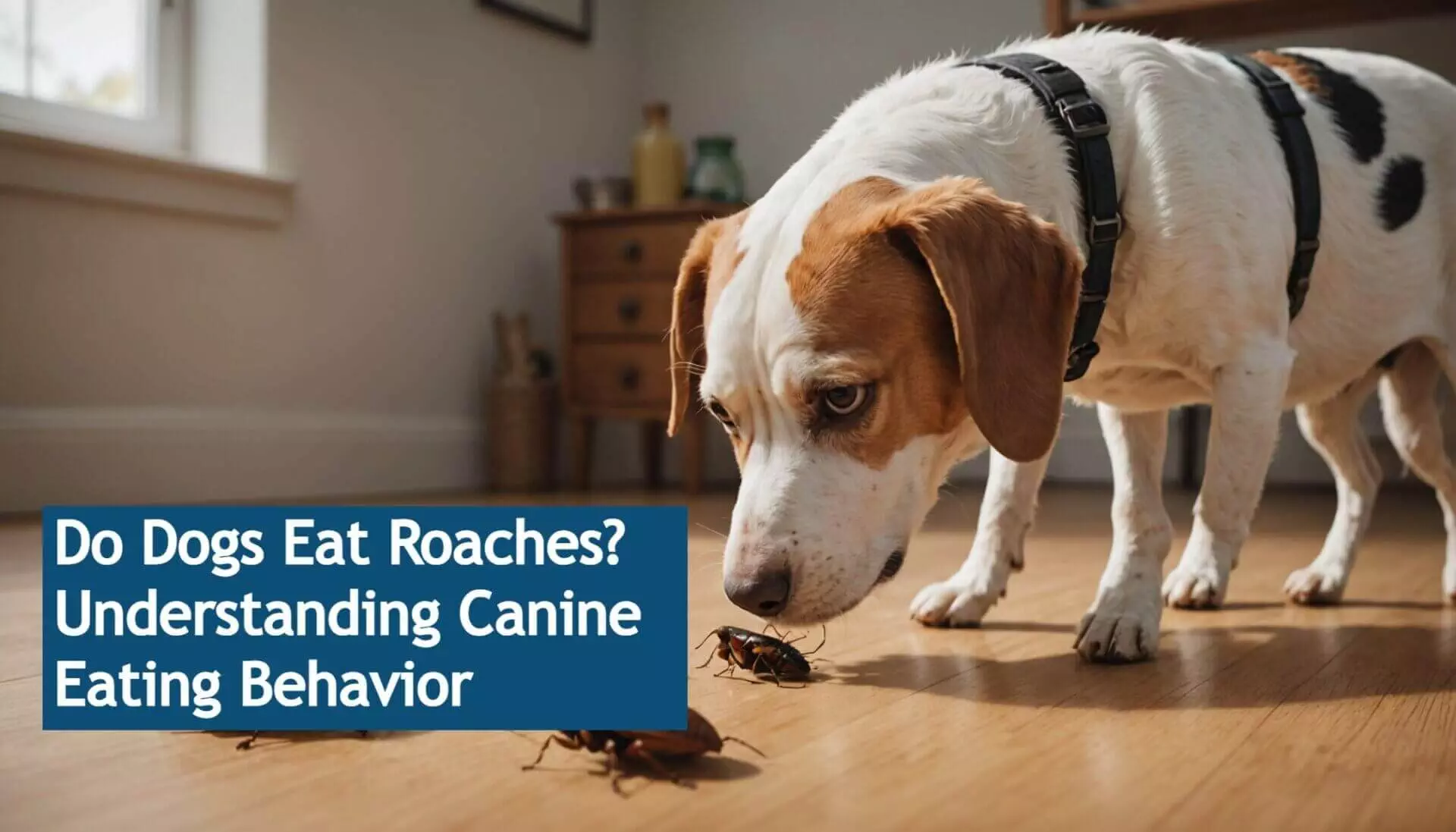Have you ever wondered what happens when your curious pup encounters a cockroach? The question, Do Dogs Eat Roaches, is one that many pet owners might find themselves asking, especially when they see their furry friend sniffing around for tasty snacks. As surprising as it may seem, some dogs can’t resist the temptation of these six-legged pests! Understanding this behavior is important because it can lead to potential health risks for your dog, including exposure to harmful bacteria or parasites.
In this article, we’ll explore common reasons why dogs might gobble up cockroaches, signs that your dog may have eaten one, and health concerns associated with cockroach consumption. Plus, we’ll share tips on how to keep your home roach-free and what to do if your dog has a run-in with one of these creepy crawlies. So, let’s dive in and learn how to keep your furry friend safe and sound!
Understanding Dog Behavior: Do Dogs Eat Roaches?
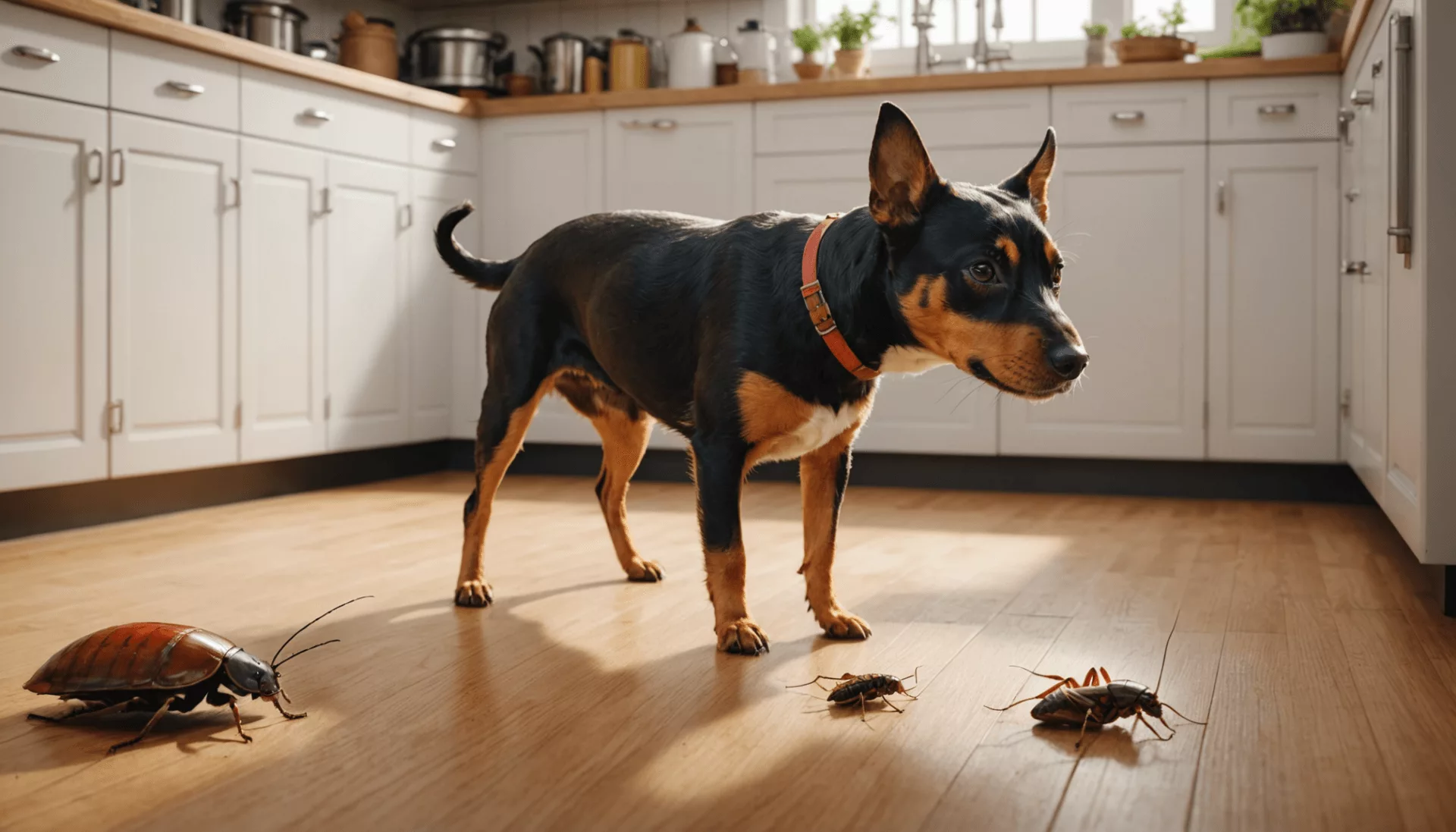
Dogs are curious animals that explore their world with their mouths. This behavior can lead them to eat things like cockroaches. Understanding why dogs might eat these 6-legged pests aids pet owners in managing this behavior effectively.
Common Reasons Why Dogs Might Eat Cockroaches
One reason dogs might eat cockroaches is their strong hunting instincts. Dogs are natural hunters, and their keen sense of smell attracts them to these insects. When a dog spots a cockroach scurrying across the floor, it may chase and eat it out of excitement.
Another reason is sheer curiosity. Dogs often investigate new smells and movements. A quick-moving cockroach can spark their interest, leading to accidental ingestion, especially if the dog has not been trained to avoid eating insects.
Not all dogs will chase cockroaches; some may ignore them. Factors like personality and past experiences influence whether a dog engages with these pests.
The Instinctual Nature of Dogs and Eating Behaviors
Eating insects, including cockroaches, can be a normal behavior for dogs, especially puppies. This trait comes from their ancestors, who hunted for food. Puppies may experiment with various foods as they explore their surroundings. Their hunting instinct can lead to eating whatever they catch, including bugs.
Additionally, dogs have a wide range of dietary flexibility. Their main food sources should be meat and plant-based, but they may also consume insects. This behavior connects to their evolutionary background. In the animal kingdom, many canines eat insects as part of their diet. This adaptability in their diet allows dogs to thrive in diverse environments and makes them opportunistic feeders. Interestingly, this is akin to the dietary habits of other animals, such as squirrels and their eating habits, which also include a variety of foods from nuts to fruits and even small insects. Understanding these dietary preferences not only helps in providing better nutrition for dogs but also highlights their instinctual behaviors inherited from their wild ancestors.
Assessing if a Dog Ate a Cockroach: Signs to Look For
If a dog eats a cockroach, owners should watch for specific signs. Common indicators include:
- Unusual Behavior: A dog may seem restless or anxious after eating an insect.
- Physical Symptoms: Look for vomiting or a sudden lack of appetite.
If any of these symptoms occur, it may indicate a negative reaction to the insect. Pet owners should closely monitor their dogs after they consume anything unusual. Taking notes on behavior changes can assist veterinarians if needed.
In the next section, we will explore the health risks associated with dogs eating roaches and what pet owners should be aware of.
Health Risks of Dogs Eating Roaches
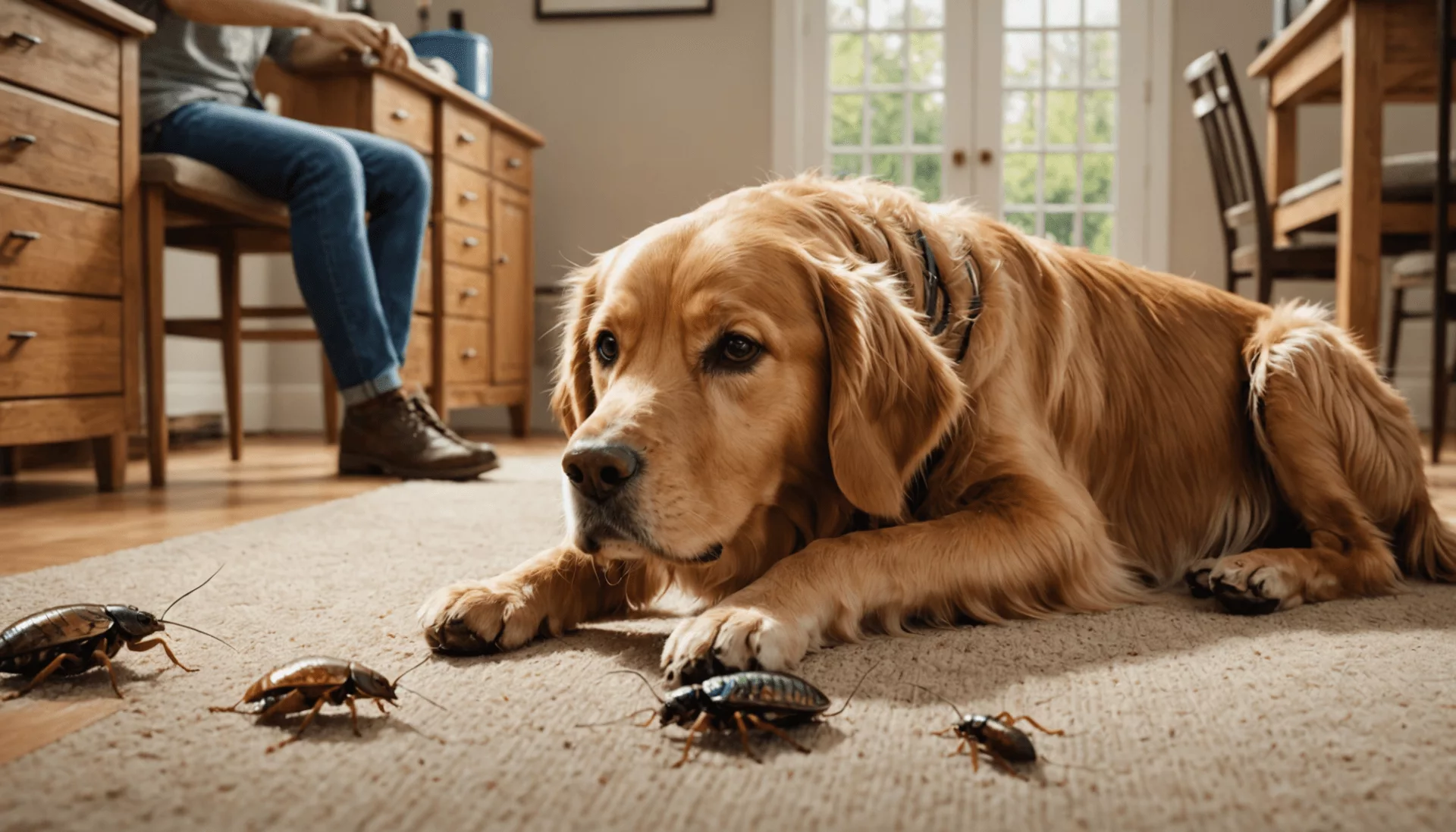
Potential Parasites and Diseases from Cockroaches
Dogs that eat cockroaches may face serious health risks. Cockroaches can carry harmful bacteria like Salmonella, which can lead to stomach issues in dogs. Symptoms of Salmonella include vomiting and diarrhea. Additionally, cockroaches can host parasites such as worms, which can cause further health problems if ingested.
| Risk | Description | Symptoms |
|---|---|---|
| Salmonella | Bacteria that can infect dogs if ingested | Vomiting, diarrhea |
| Intestinal parasites | Worms that can cause digestive issues | Weight loss, lethargy |
[Dogster]
Understanding Toxic Substances in Roaches and Their Effects
While cockroaches are not toxic themselves, they can carry harmful bacteria and pathogens. These bacteria can cause infections that affect the dog’s digestive system. Additionally, roaches may come into contact with dangerous chemicals, like pesticides. Ingesting these toxins can lead to severe health issues over time.
- Possible Health Effects:
- Bacterial infections: Can result in long-term health issues.
- Toxin exposure: May cause severe reactions depending on the chemical. [Cuteness]
When Eating Cockroaches Becomes a Health Concern
Eating cockroaches can become a health emergency if a dog shows any signs of illness. Watch for persistent vomiting, diarrhea, or abnormal behavior. If any of these symptoms occur, it is critical to consult a veterinarian immediately. Early intervention can prevent more serious health problems.
- Signs of Health Concern:
- Persistent vomiting: May indicate toxicity or infection.
- Diarrhea: Can lead to dehydration.
- Abnormal behavior: Such as lethargy or discomfort. [Top Dog Tips]
How to Manage and Prevent Dogs from Eating Roaches
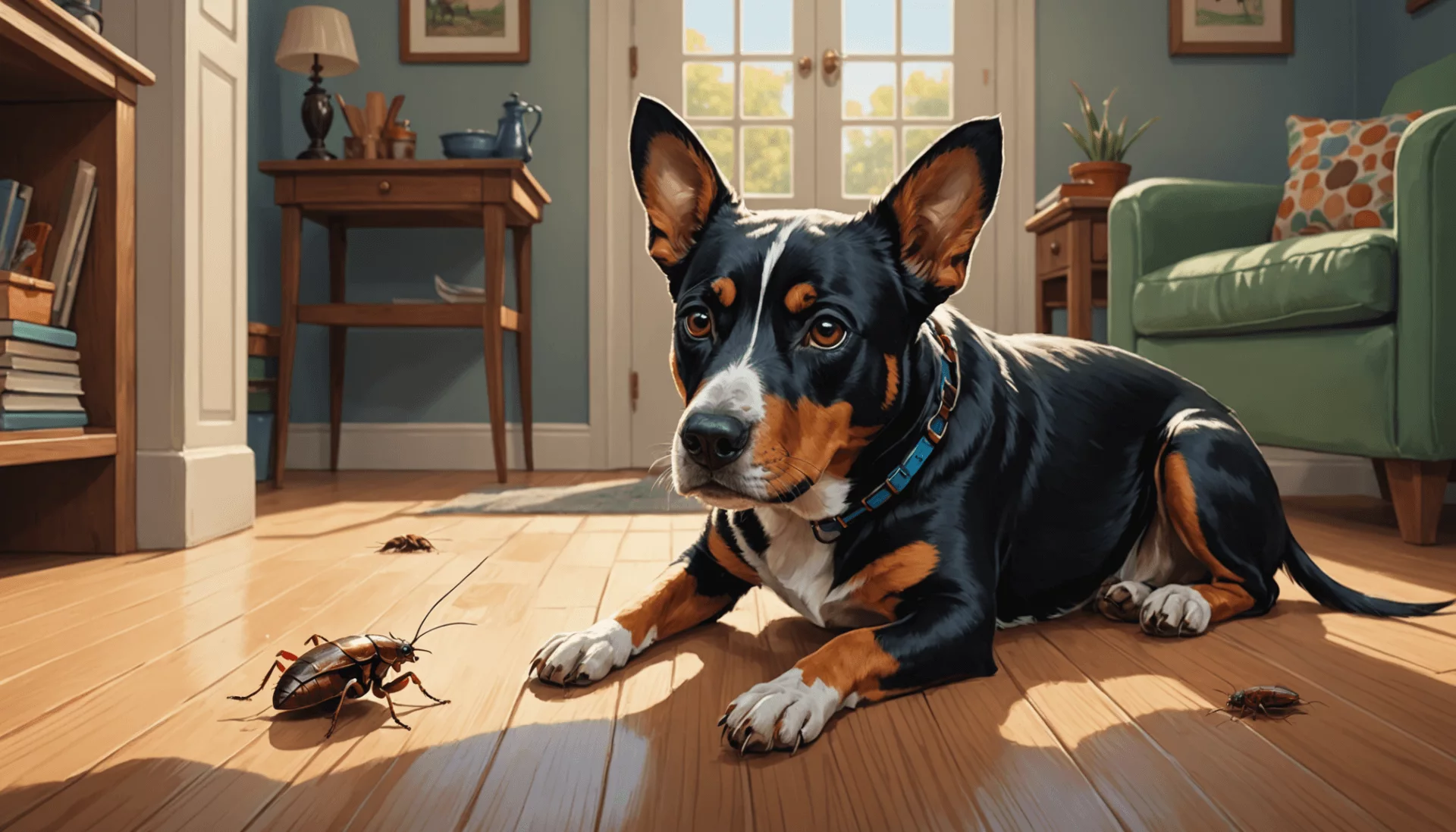
Tips for Keeping Your Home Cockroach-Free
To keep your home free of those 6-legged pests, regular cleaning is essential. Dogs often eat cockroaches out of curiosity or instinct. A clean environment reduces their attraction to these bugs. Here are some effective tips:
- Maintain Cleanliness: Regularly clean floors, counters, and areas where food is stored. This reduces crumbs and food remnants that attract roaches. Use a vacuum to remove food particles effectively.
- Seal Cracks and Openings: Inspect the home for any cracks or gaps. Seal entry points to prevent roaches from entering. Pay special attention to areas around doors, windows, and pipes.
- Store Food Properly: Keep pet food and human food in airtight containers. This minimizes access for roaches. Store food in cabinets and ensure containers are tightly sealed.
- Reduce Clutter: Keep living spaces organized. Clutter can provide hiding spots for roaches. Check shelves, closets, and storage areas for signs of infestation.
Implementing these strategies creates a less welcoming environment for roaches and protects pets from potential harm.
| Tip | Description |
|---|---|
| Clean Regularly | Keep surfaces free from food particles and crumbs. |
| Seal Entry Points | Close gaps that allow roaches to enter your home. |
| Store Food Properly | Use airtight containers for all food sources. |
| Reduce Clutter | Keep areas tidy to eliminate hiding spots for pests. |
Training Techniques to Discourage Eating Insects
Training dogs not to eat roaches is crucial for their health. Positive reinforcement helps pet owners teach their dogs to avoid eating insects. Here are effective techniques:
- Use Command Training: Teach commands like “leave it” and “no.” This helps dogs understand they should not eat insects. Reward them with treats when they obey.
- Redirect Attention: If a dog shows interest in a cockroach, redirect their focus to a toy or treat. This helps them associate the command with positive experiences.
- Create a Positive Environment: Provide engaging toys and activities. Keeping dogs mentally stimulated can decrease their interest in hunting bugs.
- Practice Patience: Training takes time. Be consistent with commands. Eventually, dogs will learn to ignore insects, leading to safer behaviors.
By using these techniques, pet owners can significantly reduce the chances of their dogs eating roaches.
What to Do if Your Dog Eats a Roach
If a dog accidentally eats a cockroach, monitoring for any adverse signs is important. While cockroaches are not toxic, some health risks are involved. Here’s what pet owners should do:
- Observe for Symptoms: Watch for signs like vomiting, diarrhea, or unusual behavior. These symptoms may indicate gastrointestinal upset.
- Contact a Veterinarian: If any symptoms appear, contact a veterinarian promptly. They can provide guidance on the next steps.
- Document Behavior Changes: Keep track of any changes in behavior after the incident. This information helps the veterinarian assess the situation more effectively.
- Stay Calm: Dogs can sense their owners’ stress. Remaining calm can help keep the dog relaxed.
Taking these actions helps ensure the dog’s health and safety after ingesting a cockroach.
Expert Insights on Dogs and Cockroaches
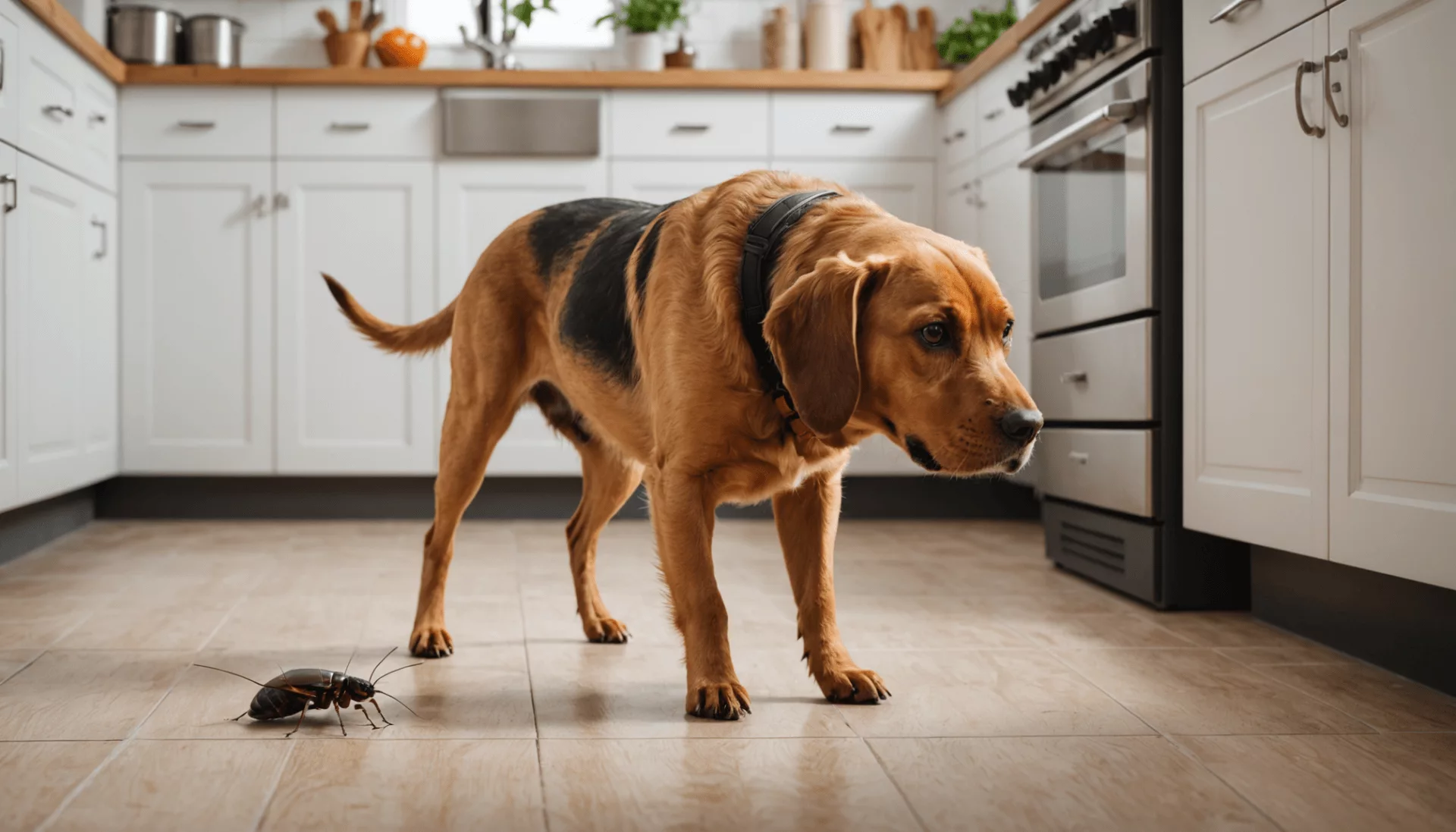
Expert Recommendations for Pet Health and Safety
Veterinarians and pet care experts emphasize monitoring a dog’s behavior, particularly their interactions with insects like cockroaches. Regularly checking for unusual actions can provide early warnings of potential health issues.
Pet owners should maintain a clean environment to reduce the likelihood of roach infestations. This includes sealing food containers tightly and ensuring there are no gaps around doors and windows. Such practices help keep harmful insects away and support the overall health of pets.
Additionally, experts recommend that dog owners educate themselves about the dangers insects can pose. Cockroaches can carry harmful bacteria, parasites, and other substances. If a dog eats a cockroach, observe it closely for any signs of illness. Symptoms such as vomiting, diarrhea, or lethargy may indicate health risks. In such cases, contacting a veterinarian promptly is crucial for proper care.
| Signs of Illness After Eating a Cockroach | Recommended Actions |
|---|---|
| Vomiting | Contact your vet |
| Diarrhea | Monitor closely |
| Lethargy | Seek veterinary advice |
Understanding Your Dog’s Behavior Around Roaches
Understanding dog behavior around insects is vital for pet owners. Dogs are naturally curious and often attracted to movement. Cockroaches can easily capture a dog’s attention due to their rapid movements. This curiosity can lead dogs to chase and sometimes consume these 6-legged pests.
Recognizing this behavior is important for managing a dog’s interactions with insects. Owners can redirect their pet’s focus using commands like “leave it” or “no.” Training helps establish boundaries and can prevent dogs from eating insects they find. Reinforcing these commands with treats encourages better behavior. This proactive approach protects dogs from potential health risks and fosters a safe living space. Additionally, keeping an eye on your dog’s outdoor activities and providing mental stimulation can reduce their curiosity toward insects. Understanding various aspects of canine behavior is crucial, especially when ensuring their safety from potential dangers. For instance, if someone comes across the term “bait dog meaning explained,” it often relates to the cruel practice of using dogs as lures in illegal activities, underscoring the importance of proper training and protective measures for all pets.
- Key Training Techniques:
- Use clear commands like “leave it.”
- Reward good behavior with treats.
By observing and understanding these behaviors, owners can create a safe environment for their pets, reducing the likelihood of unwanted insect consumption.
Long-Term Solutions for Managing Your Dog’s Diet

Recap of Key Points on Dogs and Cockroach Behavior
Dogs have a strong instinct to chase and eat moving things, including cockroaches. This behavior can stem from their high prey drive or simply from boredom. However, pet owners should be aware of the potential risks associated with this behavior. Cockroaches can carry harmful bacteria like Salmonella and E. coli, which can make dogs sick. If your dog eats a cockroach, watch for signs of distress such as vomiting or diarrhea.
To help minimize the risks, it is essential to understand why dogs eat cockroaches. Here are a few common reasons:
- Curiosity: Dogs often explore their environment with their mouths.
- Boredom: A lack of stimulation can lead to unwanted behaviors like chasing insects.
Training your dog to avoid eating insects is a proactive approach. Keep your dog engaged with toys and activities to help reduce the likelihood of them eating cockroaches.
Resources for Pet Owners Concerned About Insect Consumption
Pet owners can benefit from having reliable resources to manage their dog’s behavior around insects. Consulting a veterinarian is crucial for tailored advice based on your dog’s health history. The American Society for the Prevention of Cruelty to Animals (ASPCA) is an excellent source for information on pet health concerns.
In case of accidental ingestion of harmful substances, the local animal poison control center can provide immediate help. Online forums and pet care communities can also offer shared experiences and useful tips.
Here’s a quick reference table of resources:
| Resource Type | Description |
|---|---|
| Veterinarian | Provides tailored health advice for your dog. |
| ASPCA | Offers information on various pet health concerns. |
| Animal Poison Control Center | Immediate assistance for accidental poison ingestion. |
| Online Forums | Community support for shared pet care experiences. |
[aspca]
Summary of Signs to Watch After Roach Ingestion
| Symptoms | Description |
|---|---|
| Vomiting | Expelling stomach content through the mouth. |
| Diarrhea | Loose or watery stools. |
| Lethargy | Unusual tiredness or lack of energy. |
| Loss of Appetite | Not interested in food. |
By keeping an eye out for these signs, you can ensure your dog’s health remains a priority. Understanding these behaviors is essential for every pet parent.
Conclusion
In summary, understanding whether dogs eat cockroaches is essential for every pet owner. Dogs may munch on these 6-legged pests out of curiosity or instinct, but doing so can lead to health risks like parasites and bacterial infections. It’s crucial to recognize the signs that your dog has eaten a cockroach and to take action if needed.
As a pet parent, you can manage this behavior by keeping your home clean and using training techniques to discourage your furry friend from snacking on insects. With the right precautions, you can help keep your dog safe and healthy. Stay curious and keep exploring ways to ensure your pet has a happy, healthy life!
FAQs
1. Can Eating Cockroaches Harm My Dog?
Cockroaches can hurt dogs. They carry bad bacteria that can make your dog vomit, have diarrhea, or feel sluggish. Watch for these signs and call your vet if you see them
2. What Should I Watch For After My Dog Eats a Roach?
After a dog eats a cockroach, watch for vomiting, diarrhea, lethargy, or loss of appetite. If you notice these symptoms, consult a vet immediately to prevent serious health complications.
3. How Can I Prevent My Dog from Eating Insects?
To prevent dogs from eating cockroaches, keep your home clean, store food in airtight containers, train your dog to “leave it”, and supervise them closely.
